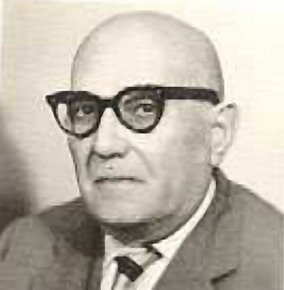
Ali Ulvi Eöve was born in Selanik in 1881. He received his primary school teaching diploma from the Elementary Teacher Training School of Selanik. During his teaching time at the Istanbul Boys Teacher Training School, he began writing lyrics for a number of European compositions with violinist Zeki Bey and flautist Adnan Bey.
During World War I, the school moved to Moda and during that time Selim Sırrı Tarcan visited Ali Ulvi Elöve and asked for a 8 syllable Turkish lyric for a popular Swedish song. The inspiration for "Dağ Başını Duman Almış" (the Youth and Sports Chant) is as follows using Ali Ulvi Elöve's own words:
"It was the time when World War I was disadvantageous for us and everyone was in lament. The concerns surrounding the nation were on my mind and had taken over my soul, even though I always had hope no matter what. I chose this subject during that time hoping it would give determination, courage and strength to the youthful hearts".
The song was sung in the Istanbul Boys Teacher Training School for the first time during the physical training performances in 1916. Later on, the chant spread fast. It's known that Atatürk began singing this chant as he walked into Samsun on the 19th of May, 1919.
Some of his very well known publications are as follows: Çocuklarımıza Neşideler, Dilbilim Terimleri Sözlüğü (Dictionary of Linguistics), Edebiyat ve Söz Sanatı Terimleri Sözlüğü (Dictionary of Literature and the Art of Expression), Küçüklere Çamur İşleri Nasıl Yaptırmalı? (How to Make the Little Ones do Clay Works?), Mikyas-ül Lisan Kıstas-ül Beyan (Measure of Value of Language, Criterion of Expression), Türk Dili Grameri (Grammar of Turkish Language), Türkçe Hekimlik Terimleri Üzerine Bir Deneme (An Essay on Turkish Medical Terms).